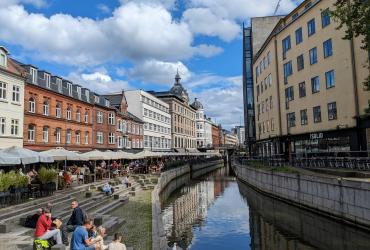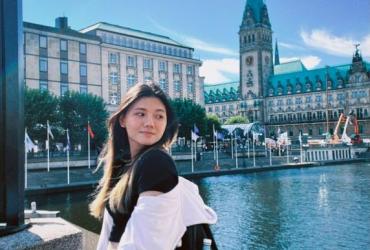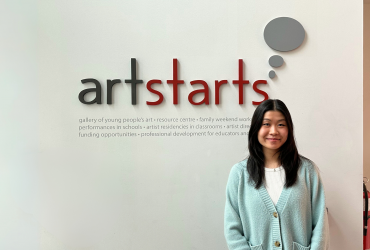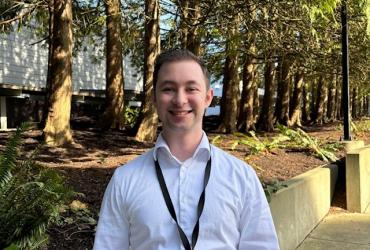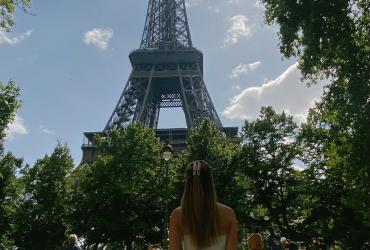Financial preparation for any exchange is super important.
Budgeting in Denmark is alright in my opinion. For groceries, there’s a budget supermarket called REMA 1000, that has fewer options than other main brand stores but still does the job for a cheaper price. There are also some deals that you’ll find throughout the city or hear about from other exchange students. When it comes to payment, most places in Denmark will actually prefer payment by card but I would still recommend bringing along some krones (Danish currency) with you just in case. Travelling to other cities is also much cheaper than flying anywhere to Vancouver as you can take the train or bus. For both travel options, you can most likely get the youth pricing for it along with an early bird discount if you plan ahead.
Regarding funding options, SFU has a lot of great scholarships and bursaries you can apply for so definitely look at them ahead of time. If you can get funding through SFU, you’ll have more money to explore Europe.
Plan your finances ahead so you can focus on having fun in Denmark.
Previous Experience
I am fortunate to say that I have had opportunities to travel to other countries in the past and that this was not my first time in Europe. Within Europe, I have travelled to France and Spain which was a really fun opportunity so I was excited to make my way back to the continent. However, other than travelling for school trips or with my family, I have never been on a solo educational trip before so this was completely new to me. This experience was brand new to me and I found that it had the best possible outcome for my first solo travel opportunity!
Financial Preparation
Financial preparation for any exchange is super important. In my opinion, budgeting in Denmark is manageable. There are also some deals that you’ll find throughout the city or hear about from other exchange students. Most places in Denmark will actually prefer payment by card but I recommend bringing along some krones (Danish currency) for emergencies. Travelling to other cities is also much cheaper as you can take the train or bus. For both travel options, you can usually get the youth pricing for it along with an early bird discount if you plan ahead. Regarding funding options, SFU has a lot of great scholarships and bursaries you can apply for so look at them ahead of time. If you can get funding through SFU, you’ll have more money to explore Europe. Plan your finances before you travel so you can focus on having fun in Denmark.
Packing
Packing for Aarhus was simple; I only started packing a day before my exchange. Bring layers as it can get quite chilly, even in the summer. Please don’t forget to bring toilet paper as most dorms will not have this for when you move in. You should bring your own internet cable as some of my friends couldn’t access the network without it and wasn't able to purchase one. As for data, get an eSIM so you don’t have to keep switching out your SIM cards. Most of these plans cover all of Europe and give you unlimited data for a reasonable price.
Travel and Transportation
Getting to Aarhus was difficult because there’s only one small airport for flights from Europe and is an hour away by bus. My flight from Copenhagen to Aarhus got delayed then cancelled so I had to take a train to Aarhus. I would recommend this as it’s cheaper, scenic, and the train runs frequently so it doesn’t get super crowded. Plus you can buy tickets easily at the airport or on the DSB app. The train took me to the city centre so it was convenient for me to take a bus straight from the platform to school.
On the topic of transportation, I mainly took the bus or tram as I can’t ride a bike. For the tram and bus, you can buy tickets or passes using the app Midttrafik. I would recommend getting a rental bike in the end as it is more convenient and there are elevated bike lanes so you’ll feel safe riding around the city. Walking around the city can be a little confusing but it’s still a lovely experience. Any way you choose to get around, it is a beautiful city to explore.
Preparation Tips for Future Students
In summary, make sure to prepare for your trip to Aarhus. Look at your funding options through SFU and bring things to stay connected. Aarhus is chilly so don’t forget to pack layers, cash, and a roll of toilet paper before you go. You can get around the city easily via walking, biking, or taking the bus. If you would like to buy a bus/tram pass, buy it ahead of time on the Midttrafik app. Make sure you look at different accommodation options and try to stay close to the school. Keep in mind that the school is only a 20 minute walk from the city centre! You’ll have a great time regardless but make sure to prepare ahead of time so you can have the best experience possible.









